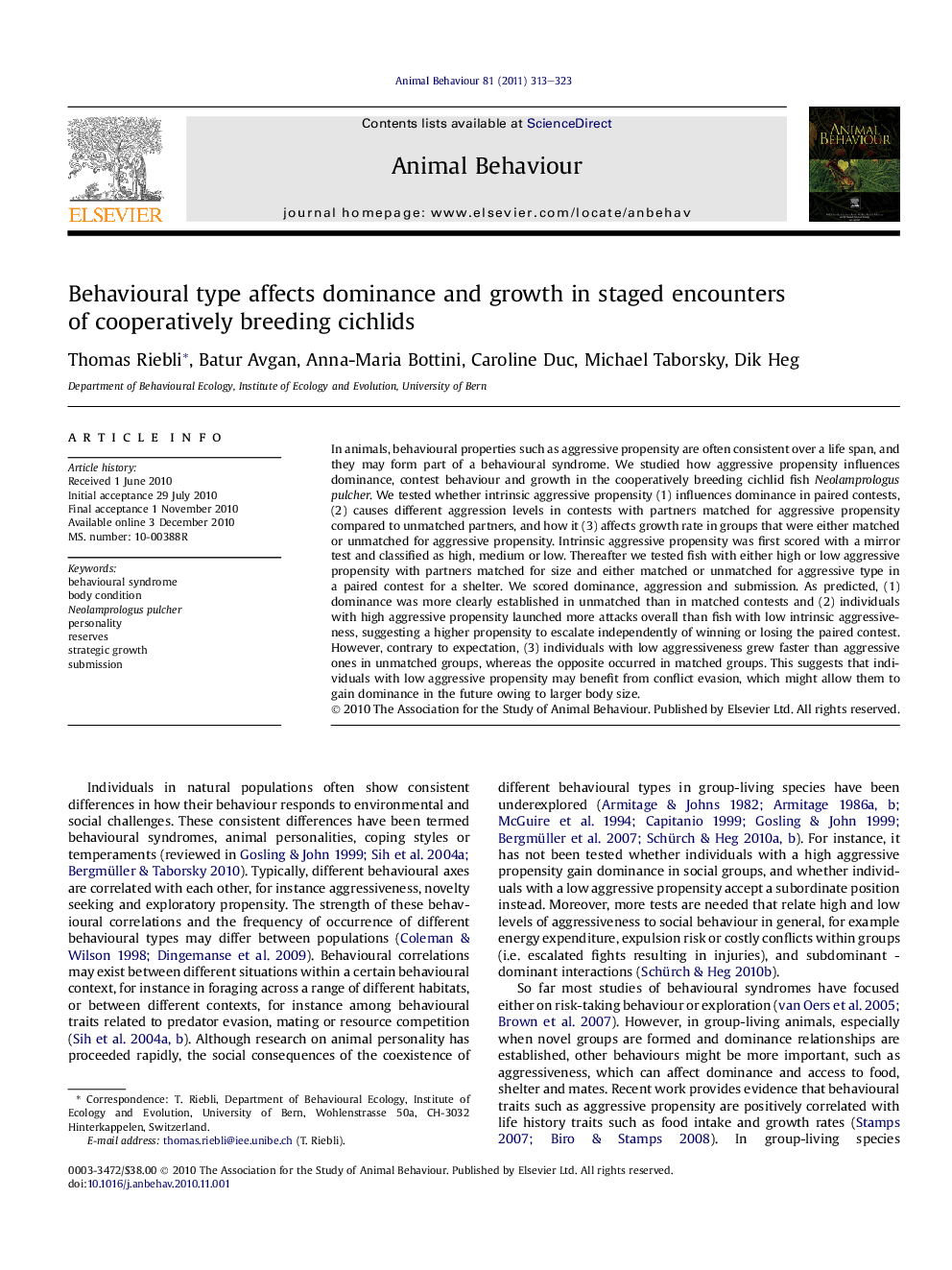| Article ID | Journal | Published Year | Pages | File Type |
|---|---|---|---|---|
| 10971061 | Animal Behaviour | 2011 | 11 Pages |
Abstract
In animals, behavioural properties such as aggressive propensity are often consistent over a life span, and they may form part of a behavioural syndrome. We studied how aggressive propensity influences dominance, contest behaviour and growth in the cooperatively breeding cichlid fish Neolamprologus pulcher. We tested whether intrinsic aggressive propensity (1) influences dominance in paired contests, (2) causes different aggression levels in contests with partners matched for aggressive propensity compared to unmatched partners, and how it (3) affects growth rate in groups that were either matched or unmatched for aggressive propensity. Intrinsic aggressive propensity was first scored with a mirror test and classified as high, medium or low. Thereafter we tested fish with either high or low aggressive propensity with partners matched for size and either matched or unmatched for aggressive type in a paired contest for a shelter. We scored dominance, aggression and submission. As predicted, (1) dominance was more clearly established in unmatched than in matched contests and (2) individuals with high aggressive propensity launched more attacks overall than fish with low intrinsic aggressiveness, suggesting a higher propensity to escalate independently of winning or losing the paired contest. However, contrary to expectation, (3) individuals with low aggressiveness grew faster than aggressive ones in unmatched groups, whereas the opposite occurred in matched groups. This suggests that individuals with low aggressive propensity may benefit from conflict evasion, which might allow them to gain dominance in the future owing to larger body size.
Related Topics
Life Sciences
Agricultural and Biological Sciences
Animal Science and Zoology
Authors
Thomas Riebli, Batur Avgan, Anna-Maria Bottini, Caroline Duc, Michael Taborsky, Dik Heg,
